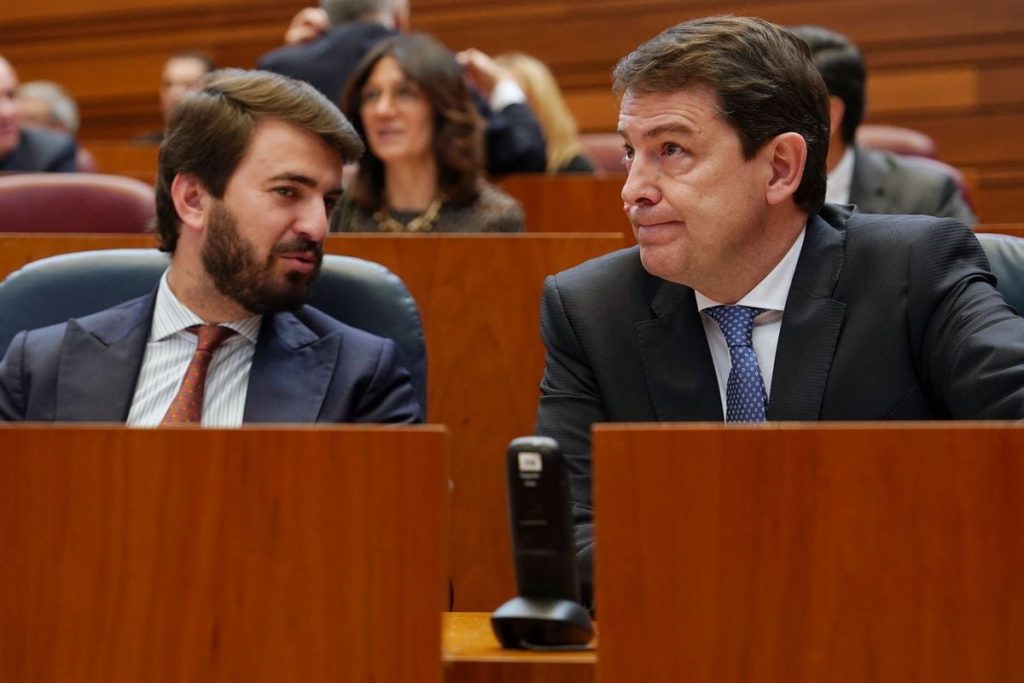The Concordia decree has taken almost two years to become a reality in Castilla y León. This regulatory requirement by Vox in the community, a pioneer in the government agreements of the PP with the far right, will finally be implemented this Tuesday with the presentation of its contents in the regional Parliament. Both parties had included this measure in their legislature pact, to replace the current Historical Memory decree, approved by the PP when it was governing alone. The ultra-right had protested on several occasions about the delay in establishing this new regional instruction, the contents of which will be revealed in the Parliament in a press conference by Raúl de la Liga (PP) and Carlos Menéndez (Vox), spokespersons for both parties in the chamber.
The news was announced through a brief press release distributed to the media on Monday, at the beginning of Holy Week, a particularly celebrated holiday in Castilla y León and which blurred the impact of the news among processions and holiday getaways. The content of Concordia is consistent with the ideological lines of the extreme right, as they reject the Historical Memory for understanding that it only refers to the victims of the Republican side after the military uprising. The community became, in April 2022, the first where the alliance between both right-wing formations was forged, in what Vox president Santiago Abascal dubbed as a “pilot project”.
The repeal of the Historical Memory in favor of Concordia was one of the main demands of the far-right to facilitate the leadership of Alfonso Fernández Mañueco, who in late 2021 dismissed Ciudadanos as a partner, called for elections to govern alone but was forced to change allies to the right. This is how Juan García-Gallardo, the controversial leader of Vox in the region, came to the vice presidency, frequently embroiled in controversies of all kinds. The mantra of “two different parties united to provide stability to the citizens of Castilla y León” was repeated on both sides of the alliance, an argument also used by Vox to explain to its electorate the delay in legislating on the Concordia demanded from the first moment in the governance negotiations.
Gallardo appealed to establish this ideologically charged regional regulation in order to “not divide” Spaniards, as according to him, the Historical Memory offers a “biased view”. De la Hoz, spokesperson for the PP in the Parliament and in charge of explaining the measure this Tuesday alongside his Vox counterpart, tried to justify the shift by ensuring that it would not “diminish rights”. Castilla y León has more than 500 mass graves that house around 7,000 people repressed by Francoism after the Civil War. The spokesperson for the regional government, Carlos Fernández Carriedo (PP), stated during those months of negotiation that the decree will serve to “combat the use of History to divide Spaniards”, as the Historical Memory Law of the central Government “buys the narrative and aspirations of Bildu”, common phrases in the Vox argumentation. The legislation replaced was approved by Mañueco’s predecessor, Juan Vicente Herrera, when he governed alone in 2018. Despite the delay, Castilla y León joins other regions such as Aragon or Valencia, where a new regulation was presented last Thursday, expanding its framework up to 1931, the year in which the Second Republic was established.














